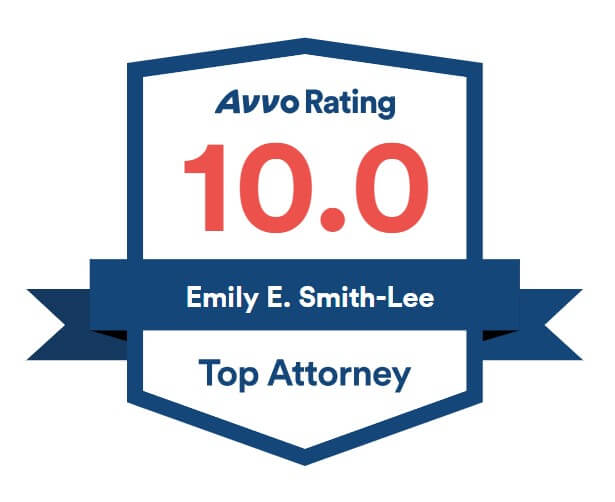Navigating Business Litigation: Common Disputes for Small Businesses
Navigating Business Litigation: An Essential Guide for Small BusinessesIn the dynamic world of business, disputes and conflicts are, regrettably, an all too common occurrence. For small businesses, these challenges can be particularly daunting, often posing significant legal and financial risks. In this comprehensive guide, we delve into the intricate realm of business litigation, shedding light on the types of disputes that frequently confront small enterprises. From contract disagreements to employment issues and partnership conflicts, we'll explore the multifaceted landscape of legal challenges that entrepreneurs and small business owners may encounter.
Whether you're seeking proactive strategies to mitigate disputes or looking to navigate the complexities of an existing conflict, our aim is to equip you with the knowledge and insights needed to safeguard your business interests and make informed decisions in the face of adversity. Contract DisputesIn the realm of business agreements, contracts are the bedrock upon which trust and expectations are built. These legally binding documents establish the terms, obligations, and boundaries that guide successful business relationships. However, the business landscape is not immune to the occasional disruption, and when contracts are breached, understanding the common types of breaches and what to expect in the event of disputes becomes paramount.
Common Employment DisputesNavigating employment disputes is a crucial aspect of small business management, with a focus on wrongful termination and wage and hour issues. Wrongful termination encompasses unjust firings due to violations of employment laws or contracts, potentially leading to legal and financial repercussions for employers. To prevent such claims, businesses should define employment terms clearly, follow employment laws, maintain meticulous records, establish transparent complaint procedures, and seek legal guidance. In the realm of wage and hour disputes, compliance with regulations like the Fair Labor Standards Act (FLSA) is essential. Issues often revolve around minimum wage, overtime, misclassification, off-the-clock work, and unauthorized deductions. Preventive measures include understanding relevant laws, accurate employee classification, rigorous record-keeping, effective overtime policies, and regular compliance audits, all aimed at safeguarding both employees' rights and business interests.
Business Torts: Fraud, Misrepresentation and Unfair CompetitionIn the business landscape, disputes can stem from various sources, one of the significant being business torts. Focusing on two prominent categories within business torts—fraud and misrepresentation and unfair competition—becomes paramount for businesses striving to safeguard their interests while upholding ethical practices.
In the realm of Fraud and Misrepresentation, understanding the elements of fraud claims is pivotal. These elements include intentional misrepresentation, deceitful intent, justifiable reliance, and resultant damages. Examples of fraudulent practices span from providing false financial statements to concealing product defects or embezzlement. The legal ramifications of fraud can be substantial, including financial penalties and criminal charges, although defenses may exist based on the nature of the misrepresentation. Unfair Competition defines unethical business practices that distort the marketplace or grant an unfair advantage. These practices can include trademark infringement, false advertising, trade secret theft, or predatory pricing strategies. Upholding ethical conduct is crucial, and tips for maintaining fair competition include strict adherence to laws and regulations, respecting intellectual property rights, transparent marketing practices, and fair pricing strategies that benefit both consumers and competitors. Understanding these aspects of business torts is vital for businesses aiming to operate ethically and legally while protecting their interests. Shareholder and Partnership DisputesIn the dynamic world of business, partnerships and shareholder agreements are the cornerstone of countless enterprises. These agreements define roles, responsibilities, and profit-sharing structures. However, even in the most harmonious business relationships, disputes can arise. This comprehensive guide explores two critical dimensions of partnership and shareholder conflicts: breaches of fiduciary duty and common shareholder disagreements. Understanding these aspects is essential for fostering strong business relationships, effectively resolving disputes, and safeguarding the interests of all stakeholders.
|
We're Here to Help.OR
|
Questions About a Business Dispute or Lawsuit?
Our Solutions Roadmap is a quick and easy way to share the details of what you are facing and receive preliminary feedback from a member of our team. Use the button below to get started- it is 100% confidential and 100% free.
Navigating Fiduciary Duties and Termination in Closely Held Companies
In Massachusetts, closely held companies operate under a unique set of rules, where shareholders owe each other a duty of utmost good faith and fair dealing. This duty becomes particularly significant when a shareholder is also an employee, as it intertwines with employment laws.
Closely held companies encompass businesses whose shares are not publicly traded, encompassing entities like S Corporations, C Corporations, and LLCs. These companies carry specific obligations among shareholders due to the limited ability to sell shares freely.
When it comes to terminating a minority shareholder, a delicate balance must be struck. While Massachusetts maintains an "at-will" employment framework, shareholder-employees often rely on their employment as a primary return on their investment in the company.
Wrongful termination allegations may arise, invoking breach of fiduciary duty if motivations are questioned. Demonstrating a legitimate business purpose for termination can shield majority shareholders from liability.
Closely held companies encompass businesses whose shares are not publicly traded, encompassing entities like S Corporations, C Corporations, and LLCs. These companies carry specific obligations among shareholders due to the limited ability to sell shares freely.
When it comes to terminating a minority shareholder, a delicate balance must be struck. While Massachusetts maintains an "at-will" employment framework, shareholder-employees often rely on their employment as a primary return on their investment in the company.
Wrongful termination allegations may arise, invoking breach of fiduciary duty if motivations are questioned. Demonstrating a legitimate business purpose for termination can shield majority shareholders from liability.
Meet Our Business Attorneys

Emily Smith-Lee is the owner and founder of slnlaw. She is a 1996 graduate of Boston College Law School. She was previously a partner at the Boston office of a large international firm, where she worked for thirteen years with a focus on business litigation. In 2009, she started the firm that since became slnlaw, and has grown it from a solo practice to a five-attorney firm with multiple practice areas. She has been recognized as Massachusetts Superlawyer each year since 2013, and in 2018 earned recognition as one of Massachusetts Lawyers Weekly's Lawyers of the Year. She has written a book on employment law: Rules of the Road, What You Need to Know About Employment Laws in Massachusetts, and helped hundreds of small business owners with contracts, business transactions, employment law advice, business incorporation, and risk management. She has also litigated business disputes in state and federal courts.

Rebecca Rogers: Rebecca is a 2006 graduate of Boston College Law School, and has worked with slnlaw since 2013. She previously worked as an intellectual property litigation attorney for Fish & Richardson in Boston, Massachusetts, and clerked for the Massachusetts Supreme Judicial Court. Rebecca has helped clients with business contracts, employment contracts, and employment law advice.

Jenna Ordway: Jenna is a 2013 graduate of Quinnipiac Law School, and also earned an LLM in Taxation from Boston University in 2015. She has been affiliated with slnlaw since 2011, first as a law clerk and then as an attorney. Jenna has been recognized since 2019 as a "Rising Star" by Massachusetts Superlawyers. Jenna has helped many small business owners with simple and complex business incorporation, contract review, advice and analysis regarding business disputes, employment law advice, and advice about business succession considerations as part of estate planning.

Elijah Bresley: Eli is a 2014 graduate of Seton Hall Law school, and has worked with slnlaw since 2020. He previously worked for a boutique employment law firm outside of Boston, and then for the Labor and Employment department of a large Boston firm. He also spent a year clerking for the judges of the Superior Court in Hartford, Connecticut. Eli has helped our small business clients with employment law advice and defense of employment-related lawsuits in MCAD and state and federal courts.

Sharleen Tinnin: Sharleen is a 2010 graduate of Northeastern University School of Law, and has been with slnlaw since 2023. Prior to joining slnlaw, she worked with King, Tilden, McEttrick & Brink, P.C. on complex civil litigation matters. She previously worked for the United States Department of Justice, and received an "Excellence in Justice" award in 2017. Sharleen has helped clients litigate business disputes in state and federal courts, and advised business owners about succession considerations as part of their estate planning.
How We Can Help
At slnlaw, we specialize in Massachusetts small business law, offering comprehensive guidance to protect your business. We can help you address or avoid many business disputes. You can click the button below to schedule a free information call, or call us at (781) 784-2322.
|
Emily Smith-Lee Rated by Super Lawyers loading ... |
Jenna Ordway
Rated by Super Lawyers loading ... |


